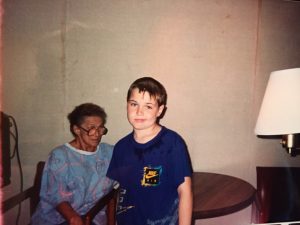Childhood Trauma and its Potentially Detrimental Effects
“‘Chaotic — there is no other way to describe my childhood. I always felt alone.’”
Rob Sullivan, now an adult, still remembers the traumatic events from his childhood that impact him every day. In an interview with the New York Times, Sullivan discusses how the trauma in his life as a child has led him to hardships in his adulthood.
Running into trouble with the law as an adult, Sullivan believes that he is responsible for making bad decisions in his own life, although experts claim that this troubling path may begin long before the individual recognizes it.
What happens to a child in their youth can affect their decisions as an adult- whether that be ending up in prison or even their overall cognitive functioning.
“’Childhood trauma is a huge factor within the criminal justice system,’” said Christopher Wildeman, a sociologist at Cornell University and co-director of the National Data Archive on Child Abuse and Neglect. “’It is among the most important things that shapes addictive and criminal behavior in adulthood.’”
As seen in Hillbilly Elegy, author J.D. Vance describes traumatic events of his own childhood that still affect him and his relationships today.
“In my worst moments, I convince myself that there is no exit, and no matter how much I fight old demons, they are as much an inheritance as my blue eyes or brown hair” (230).

Childhood trauma affects everyone differently, but for both Sullivan and Vance, the troubling memories from their childhood do not fade away with age.
Both Sullivan and Vance completed questionnaires that measured the degree of childhood trauma, criteria including physical and verbal abuse, abandonment, and several others, and the two of them scored relatively high.
In Sullivan’s case, there have been many connections to those in prison and their experiences with childhood trauma.
A New York Times study followed 10 newly released prisoners in Connecticut for a year, Sullivan being one of them. A look at their histories demonstrated that before they were prisoners, many of them were victims of abuse.
Seven of those 10 completed a questionnaire to quantify the level of childhood trauma they experienced, and all but one scored four or more, indicating a high degree of trauma and an elevated risk for chronic diseases, depression, substance abuse, and violence.
Although traumatic childhood experiences affect individuals differently throughout their lifetime, most adults remember many of the traumatic events they experienced. For Sullivan, he has run into trouble following some patterns of previous family members, such as substance abuse and prison. Although it is a grueling process, he hopes to turn his life around for the better.

“’I have never followed through on anything in my life,’” he said, tears in his eyes. “’It’s hard. I know if I end up back in the streets I will end up drinking and using again.’”
Undoubtedly, childhood trauma has been scientifically proven to affect individuals in their adult years. It will be interesting to see what kind of continued discoveries we will read about childhood trauma moving forward and possible solutions for this serious issue.
Gillian Keebler
Student Assistant, Go Big Read Office